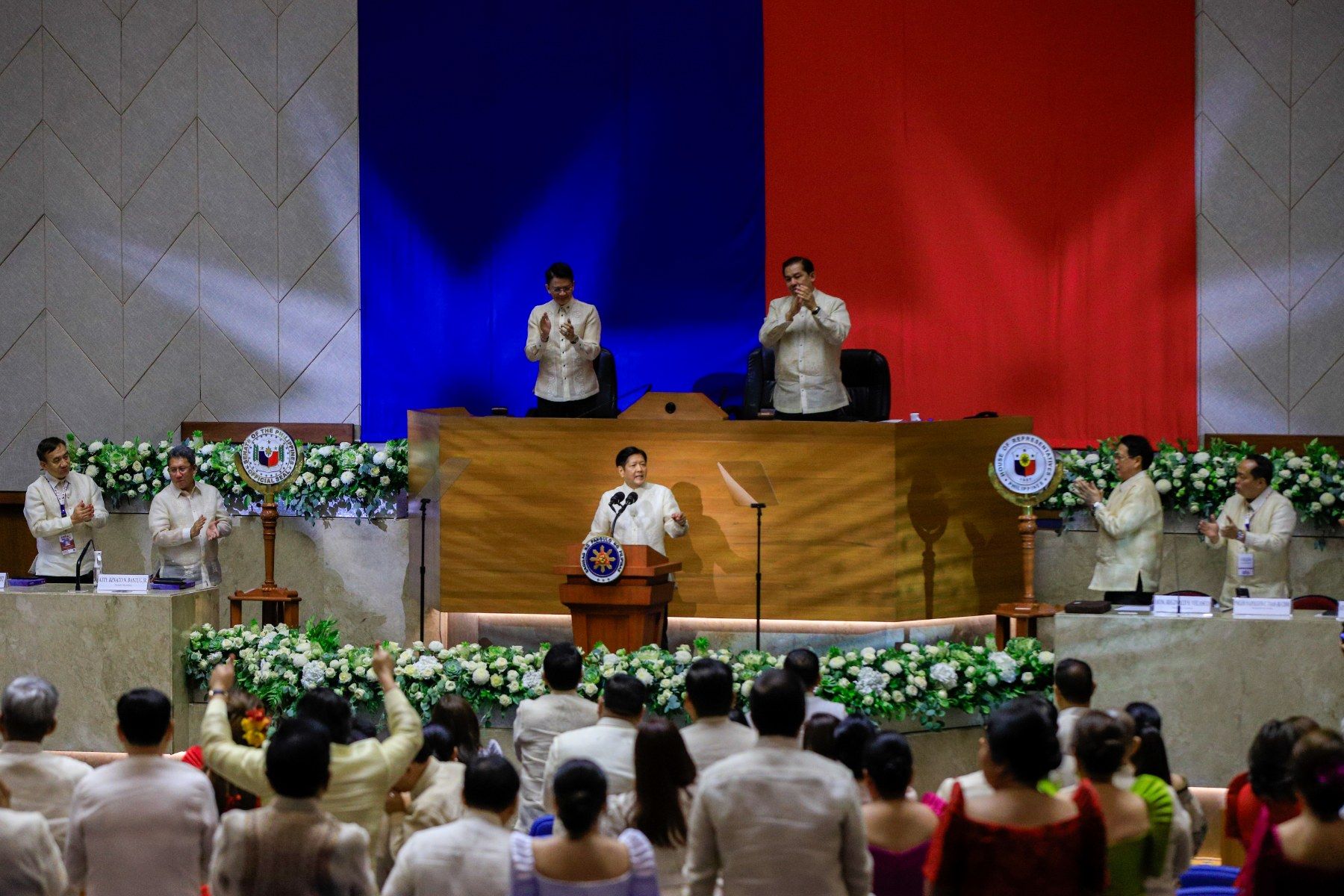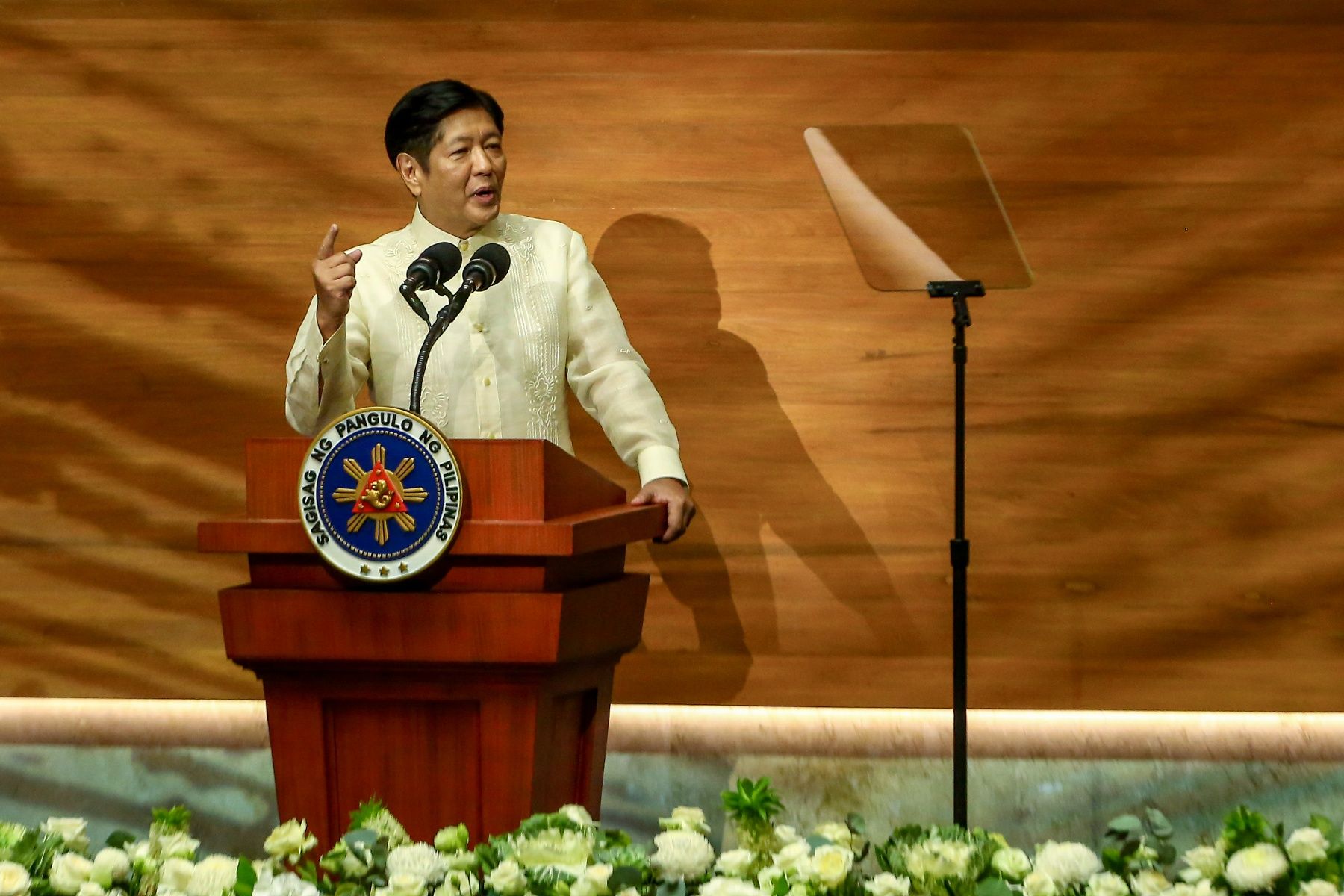Explainer: What happens now after POGO ban; public still very interested

The news was received with a standing ovation and lengthy applause from the lawmakers and guests who reacted to President Marcos’ pronouncement – “Effective today, all POGOs are banned” – in his third State of the Nation Address (SONA) on Monday, July 22.
“I hereby order the Philippine Amusement and Gaming Corporation (Pagcor) to wind down and cease the operations of POGOs by the end of the year,” the President said.
In many places outside the Batasan Pambansa, applause and cheers also greeted the order, after the issue on the Philippine Offshore Gaming Operators (POGOs) had been related as stories of crime, rich lifestyles, and mysterious circumstances. It was a blockbuster in social and traditional media.
For months, the Senate investigation on the identity of Bamban Mayor Alice Guo and her relationship with POGOs, discussions on whether POGO should be allowed to keep operating in the country by political leaders and opinion writers – attracted a multitude of viewership and netizen comments.
But it was not only the words said during these forums that stoked public interest and strong opinions. It was also the police reports on the raids on POGO workplaces which discovered paraphernalia allegedly used for internet scamming and torture, aside from luxurious structures and furnishings.
On July 17, members of a joint House committee tried – but failed – to stomach video clips of alleged torture on individuals recorded within POGO hubs in the country.

What next for POGOs?
So, what happens now that the President had banned POGO operations effective July 22, 2024?
In an interview after the SONA, Alejandro Tengco, Pagcor chairman, told Reuters: "No problem in closing down POGOs because I can invoke national security and the President's order."
The challenge for law enforcers is to now prevent these firms from going underground, Tengco said, adding the government stands to lose around P23 billion a year in license fees and taxes on the POGOs, according to a Reuters report.
The Reuters report said: “The Philippines' gaming regulator said on Tuesday it will cancel the licenses of offshore gambling firms and work with law enforcement agencies to implement President Ferdinand Marcos Jr's order of a total ban on the industry.”
The most significant result of the ban would be the loss of jobs of some 40,000 people – 27,000 of them Filipinos – who are working directly with the POGOs.
President Marcos, in his SONA, had also instructed the Department of Labor and Employment (DOLE) to find new jobs for those who will be displaced.
On July 23, Finance Secretary Ralph Recto said in a statement: “We have until the end of the year to ensure that all displaced Filipino workers will have new jobs and I think that is more than enough time. The DOF will work closely with the DOLE to ensure that the workers’ incomes will not be severely disrupted and that we provide them with proper reskilling and upskilling training for new employment.”
Economic benefits vs costs
Recto said the country was only getting less than half of the economic costs it incurred from allowing POGOs to operate.
He said that annually, the estimated economic benefits from POGOs amounted to P166.49 billion, while the net cost of monitoring POGO operations reached around P99.52 billion.
The P166.49-billion benefit was also 37 percent lower than the estimated total economic cost of P265.74 billion, he said.
The presence of POGOs, though, also give direct economic benefits in office and residential space rentals, transportation, food and other living requirements of the employees. A property developer had said that some 1.05 million square meters of office space will possibly be vacant due to the ban.
According to the report, the estimated economic costs include the undesired effects of reputational risks which have an impact on foreign direct investments. “POGO-related crimes also bring negative impact in terms of the country’s attractiveness as a tourist destination,” the report said.
Going underground
Another problem that the ban is anticipated to create is that gaming companies may go underground which will now make it difficult for law enforcers to monitor them.
On July 12, 2024, the Pagcor, on its website, said: “Outlawing Internet Gaming Licensees or IGLs, previously called POGOs (Philippine Offshore Gaming Operators) could cause bigger problems since it would drive legitimate operators underground.”
“If this happens, it would become harder for us to monitor them, and the number of illegal operators would grow and pose a bigger headache to our law enforcement authorities,” according to Pagcor Chairman and CEO Tengco.
Mr. Tengco said it is very likely that when legitimate operators are banned, they will simply hide and vanish, bringing with them their gaming equipment like computers and machines and simply continue to operate without government monitoring and supervision.
“Once they are underground, we lose control over them,” Mr. Tengco said. Despite this, the PAGCOR chief said the agency will respect whatever decision Congress will make on the issue.
“It is the prerogative of our lawmakers to outlaw IGLs, if they believe it will solve our problems. However, for us, the real problem is the criminal syndicates masquerading as POGOs. It is only through intensified law enforcement and the cooperation of all sectors that we would be able to address the problem of criminality,” Mr. Tengco said in the Pagcor website statement.
The crimes that got people interested
The story of Mayor Guo had captured the country’s attention for months starting in March 2024 when Senator Sherwin Gatchalian urged the Department of the Interior and Local Government (DILG) to thoroughly investigate the possible links of the Bamban mayor to Tarlac-based POGO. He said documents obtained by his office have raised suspicions regarding the involvement of Guo in activities related to the operation of the POGO, which was raided by authorities on March 13 due to complaints of human trafficking and serious illegal detention.
Following that were a series of senate investigations that probed into the identity of the mayor, whose birth certificate was only registered when she was 17 and who had no school records.
In June 27, 2023, police reported the rescue of a total of 2,714 human trafficking victims, including 1,186 foreigners from various parts of Asia and Africa, during a raid on a suspected POGO facility in Las Piñas City. The Philippine National Police-Anti-Cybercrime Group (PNP-ACG), said the raids were conducted in seven buildings on Alabang-Zapote Road in Barangay Almanza Uno.
In a police report, the National Capital Region Police Office (NCRPO), said the rescued foreigners were 600 Chinese, 183 Vietnamese, 137 Indonesians, 134 Malaysians, 81 Thais, 21 Taiwanese, five Singaporean and five Myanmar nationals.
Also rescued were seven Nigerians, four Yemenis, two Pakistanis, an Indian national, a Somali, a Sudanese, one Iranian, and three other foreigners from Africa.
The NCRPO report also disclosed that 1,528 Filipinos were also rescued.
POGOs or IGLs?
There’s an issue that now appears on the sidelines of the President’s order after Tengco had announced in October 2023 the change in the name of POGO to IGL.
Months before the name change, Pagcor had required POGOs to reapply for licenses for the revised regulations, the Internet Gaming Regulations.
Now, questions have been raised about the IGL name which some say is just a re-branding. But people are asking: Since not all POGOs then had reapplied for IGLs, are they the ones who are referred to in the ban? Or does the ban also include IGLs who are involved in the same operations?
What is important, though, is the answer to this general question: Are POGOs and IGLs the same?
What is a POGO?
From the “Profile of Philippine Offshore Gaming Operators, 2022” from the Congress website, POGO ‘refers to a duly constituted business corporation organized in the country to conduct offshore gaming operations or engage the services of PAGCOR-accredited service providers. Offshore gaming pertains to the offering of a PAGCOR licensee of authorized online games of chance or sports events via the internet using a network and software or program, exclusively to offshore authorized players.”
The website said “POGOs may be broadly categorized into two groups: E-Casino and Sportsbetting. E-casino refers to the operation of a live casino or random number games. On the other hand, Sportsbetting is the acceptance or facilitation of wagers in operation of predicting the outcome and results of sporting events such as football. Notably, there are POGO operators that provide both E-Casino and Sportsbetting.”
The POGO operations started in 2016.
How many POGOs operating here?
According to Presidential Anti-Organized Crime Commission (PAOCC) spokesperson Dr. Winston Casio, only 42 POGOs operate legally in the Philippines. The government has already canceled 298 POGO licenses from different parts of the country but some of them still operate underground.